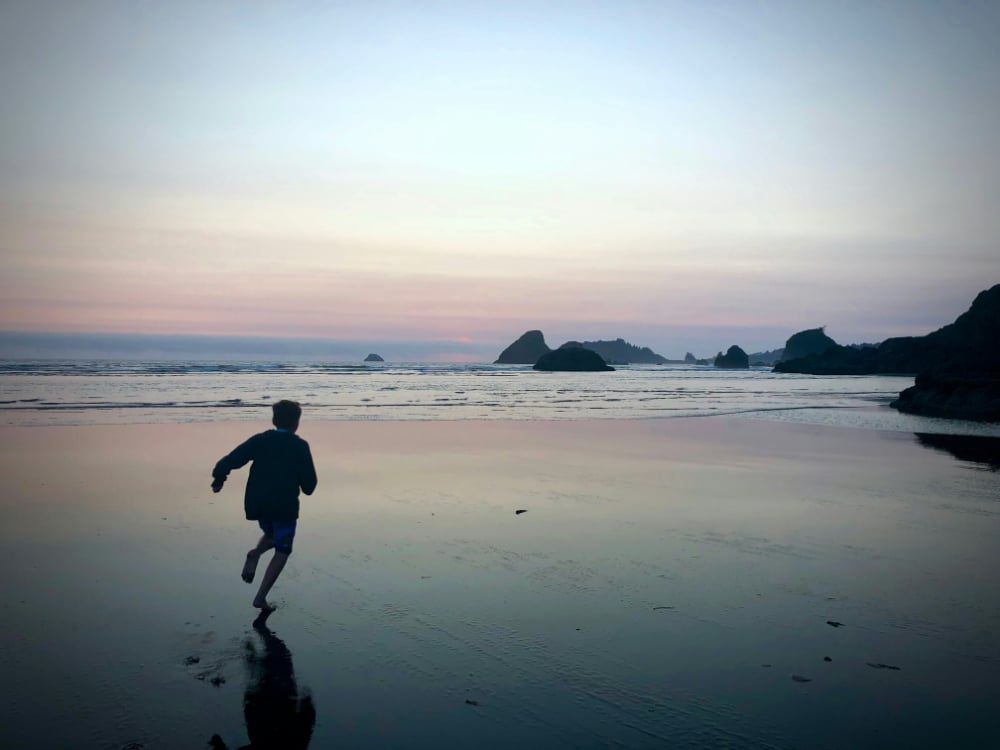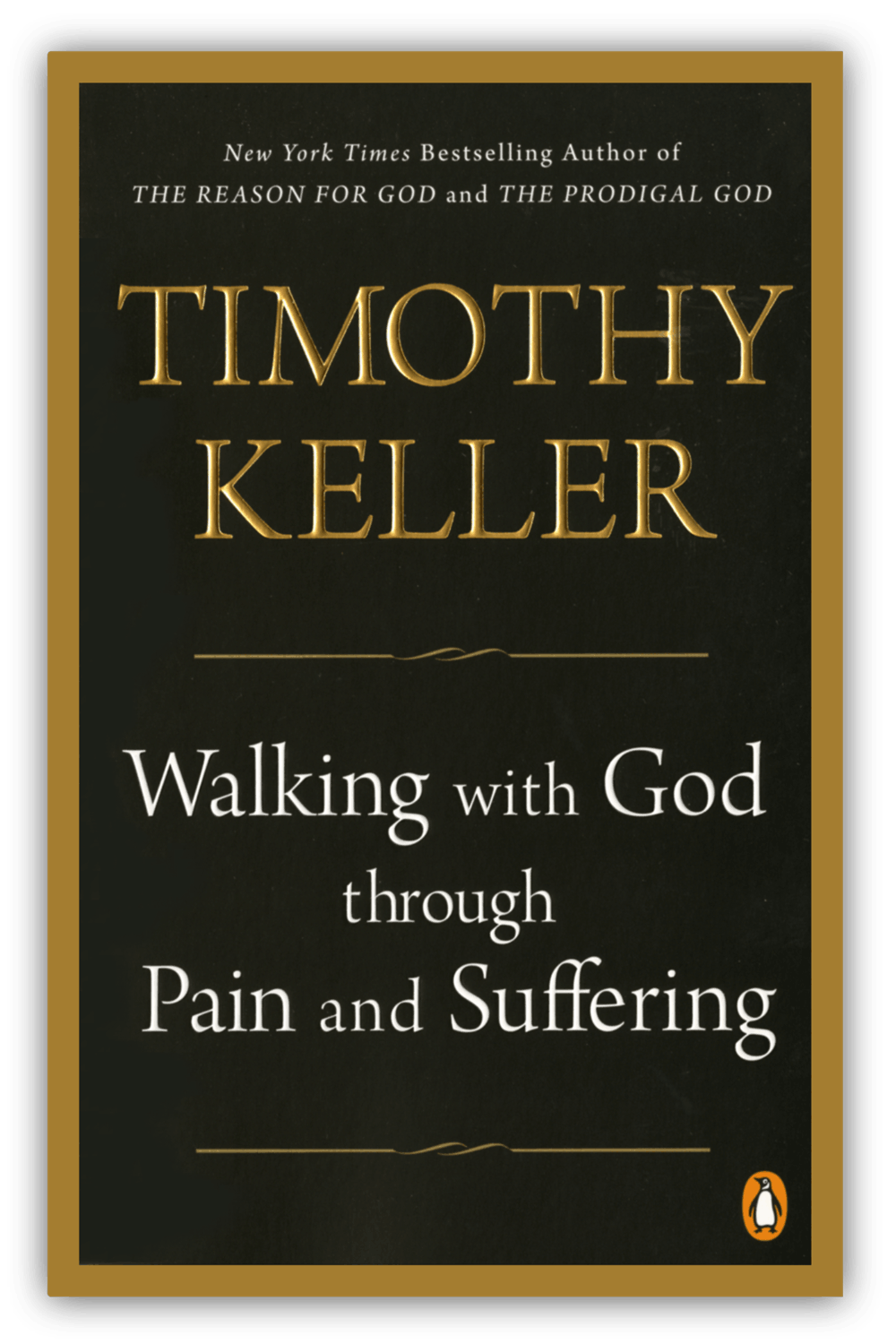Molly Yeo attended Redeemer and RUF while a student at the Joffrey Ballet School. After graduation, she danced professionally with the Nashville Ballet before retiring from ballet in 2019. She subsequently earned her BSN from the University of Virginia, where she is now a registered nurse and PhD student pursuing cancer research.
I keep a framed black-and-white photograph of a woman named Florence Chadwick on my desk. It was taken on the beach of Santa Barbara, California in the 1950s, and she’s wearing a vintage style one-piece bathing suit, with her hair tucked away in a swim cap. She’s just finished a swim and is smiling as she runs out of the Pacific Ocean onto the shore. You may have never heard of her, but she is one of history’s greatest open-water swimmers.
On August 8, 1950, Florence became the first woman in the world to swim the English Channel in both directions, taking her almost thirty hours to swim from England to France and back. While she set world records, Florence never qualified for the Olympics. She wasn’t fast enough. The distances required to compete in the games were too short for her, and her times never placed. Instead of speed, Florence’s strength was endurance.
Two years later, on July 4, 1952, Florence attempted a new challenge: to swim from Catalina Island to the mainland of California. That morning, a fog set over the water. She could barely see the boats that flanked her, looking out for sharks in the Pacific Ocean. After almost sixteen miles of swimming, she became exhausted and disoriented from the mental strain of the foggy conditions. She begged to be taken out. Both her mother and trainer were in a boat beside her and encouraged her to press on: “You’re almost there. Keep going. Don’t stop.” They urged perseverance, but Florence gave up. She was tired and could not see where she was going. As she dried off and the boat headed for land, she soon discovered that after sixteen miles of swimming, she had only been half a mile away. Later, during a press conference, she said,
“I’m not excusing myself, but if I could have seen land, I know I could have made it.”
Like Florence’s swim, this life does not have clear sightlines. For years we pray prayers that may seem unanswered; deep desires may be left unfulfilled. At times God appears silent as we struggle to understand why he does what he does. In the sometimes turbulent and disorienting waters of this world, like Florence, we need tangible hope that the land is there. As Christians we are called to keep journeying toward a promised shoreline, enduring the elements, and persevering toward a place we’ve never seen or been to, but that we were created for.
As Christians we are called to keep journeying toward a promised shoreline, enduring the elements, and persevering toward a place we’ve never seen or been to, but that we were created for.
We talk often about Christ’s sacrificial death on the cross, but what we don’t give enough weight to, except perhaps once a year at Easter, is his resurrection. The resurrection is the assurance that God will someday make all things new and right. It means that we don’t trust in what we see. The tomb is empty. Instead, we look beyond this world to what is waiting for us. Like rays from a lighthouse shining from eternity, the promise of the resurrection gives us the hope of the shoreline — to know that what we cannot yet see is waiting for us. Eternity is there, not because we have seen it with our own eyes, but because it is promised. Hebrews 12 tells us that the Christian’s pathway to that shoreline is through running a race with endurance.

Therefore, since we are surrounded by so great a cloud of witnesses, let us also lay aside every weight, and sin which clings so closely, and let us run with endurance the race that is set before us, looking to Jesus, the founder and perfecter of our faith, who for the joy that was set before him endured the cross, despising the shame, and is seated at the right hand of the throne of God (Hebrews 12:1-2).
God doesn’t underestimate how hard this call is, and what he called Jesus to on earth is evidence of that. One writer says this:
We tend to think that the race marked out for us is going to be some nice, smooth, circular track — kind of like the movie Chariots of Fire and there will be cheering crowds as we break the tape and cross the finish line. But life is not like that. Life is more like a cross-country steeplechase with rivers, waterfalls, fallen trees, rocks, and bugs. Sometimes there are green pastures to lie down in and rest, and other times really dark valleys. [] [1]From a Round Table presentation given by Kathy Keller to McLean Presbyterian Church young adults titled “What to Look for in a Spouse,” June 18, 2021.
What this is getting at is that whatever your race is, or whatever you might have thought it would be, it is not always going to be smooth or comfortable. Jesus’ was not; he was perfect, yet he experienced immense suffering and pain. The entire Bible shows precedence. In his book, Holiness, former Anglican bishop, J. C. Ryle, writes,
But it does cost something to be a real Christian, according to the standard of the Bible. There are enemies to be overcome, battles to be fought, sacrifices to be made, an Egypt to be forsaken, a wilderness to be passed through, a cross to be carried, a race to be run. [] [2]J. C. Ryle, Holiness, p. 95.
Our Joyful Forerunner
I read once that losing a loved one is like standing on a dock waiting to jump into a lake. You can mentally prepare yourself that the water will be cold, and that as you swim you will warm up, but when you finally jump in, the experience is so visceral it immediately takes your breath away. We think we understand our mortality, and that of all our loved ones, but the truth is, nothing can prepare you for how shocking it feels. When it happens, the reality of loss just takes your breath away. [] [3]This thought comes from D. A. Carson, How Long, O Lord? Reflections on Evil and Suffering, (Grand Rapids, MI: Baker Academic, 2006) p. 141.
Hebrews 12 tells us that no matter what is ahead of you, whatever pain of this life that may take your breath away, there will be no part of your race that has not already been run by Jesus. Hebrews 12 tells us that we have a perfect forerunner. We are only able to make it because Jesus ran it first. And he ran it perfectly, for us. It is no mistake that verse 2 says, “who for the joy that was set before him endured the cross.”
Here Jesus was, perfectly holy, awesome in divine majesty, who left his eternal throne to experience rejection, endure shame and sorrow, and suffer the agony and humiliation of crucifixion. The immortal God transcended time and space to subject himself to the entirety of the broken human experience. The incarnation means that whatever doubts we may have about Christianity, we can never say that God does not understand us; God created us, and then he lived and died among us. He is well acquainted with the world we live in, any sorrow or grief we could ever encounter, and he knows each part of this life intimately. Author Dorothy Sayers wrote,
[God] had the honesty and courage to take his own medicine. … He can exact nothing from man that he has not exacted from himself. … He was born in poverty and died in disgrace and thought it well worthwhile. [] [4]Dorothy Sayers, Creed or Chaos?, (Sophia Institute Press, 1995) p. 6.

The Bible says that Jesus did all of this, not “for the obligation set before him,” but out of the joy. The principal motive of his life, a life filled with rejection and sorrow, was the overwhelming joy of submitting to the will of his Heavenly Father — the joy of forming us to be perfect in our suffering and the joy of reconciling us and our sin that we might have peace with God. Joy was Jesus’ response to enduring this world, and he has given us every means necessary that this joy should be now ours as well. Jesus’ life on earth shows that enduring obedience leads to glory. We have direction because we know our destination, comfort because we do not run an uncharted or solitary path, and hope because we know someday it will be worthwhile.
The Image of the Shoreline
Two months after failing to make it across, Florence Chadwick dove back into the water off Catalina Island. The fog that day was just as thick as her first attempt, but this time, she made it. After almost fourteen hours, she swam the distance. When asked how she did it despite the fog, she said,
“I kept the mental image of the shoreline in my head.”
Notice how Florence’s circumstances had not changed. The weather was the same. But now her eyes were not set on what she could see — they were set on what she knew was there. The shoreline was waiting for her, if only she kept going.
As followers of Jesus, we are not short sprinters. We are called to go the distance — to be long-suffering and to persevere with endurance. Our race will not always feel as brave as an open-water swim across the English Channel or as victorious as setting world records. At times it might feel hopeless, lonely, dark, exhausting. It may take our breath away. But a faithful race is made up of countless steps of obedience, some that you will only be aware of the significance of one day in eternity. It is a race made up of many moments of trust in the One who sees farther than us.
Psalm 119:105 says, “Thy word is a lamp unto my feet, and a light unto my path.” It does not say that his word is a streetlight or a floodlight. It is a lamp. This means that we only see what he illuminates in front of us as we journey on; we don’t see the end of the road, only the next step. And so we walk forward with faith, trusting him to show us the rest.
Three Practical Questions
Maybe when facing a decision or seeking guidance from God, like me, you have wished that God would simply spell out the answer or speak aloud through a megaphone. But in my experience, this is not the way it happens. Because it wouldn’t require our faith or trust — two things God is always after. Author and former missionary Elisabeth Elliot gives these three simple questions to ask yourself when attempting to decipher the wisdom of God in your life:
- “Have I made up my mind to do whatever he says, no matter the cost?
- Am I faithfully reading his word and praying?
- Am I obedient in what I know today of his will?” [] [5]Elisabeth Elliot, Keep a Quiet Heart, (Ann Arbor, MI: Vine Books, 1995), p. 156.
These practical questions remind us that obedience must precede understanding. God speaks through his word and hears our prayers. Each day he gives us exactly what we need to take another step to stay the course — never more, never less.
Trust God and Get Going
The Bible shows us that he often calls us onto paths we would never have chosen for ourselves, but on them, we are changed. This is the beauty of sanctification. On these paths we are made to be more like him: holy, faithful, and joyful in any circumstance. And so, in God’s kingdom, there are no “small” steps of obedience in life. There is only obedience. A race consists of one step of faith after another, only God knows the eventual magnitude of them and exactly where they are taking us in this life. We don’t see the finish line when we start the marathon; we run knowing that it is there waiting for us. For the Christian, the prize of our running is perfect fellowship with God, the fullness of every blessing, for all eternity.
In one of her many letters, former missionary to India, Amy Carmichael wrote this:
“But this I know: you will regret nothing when you look back, except lack of faith or fortitude. … You will never regret having thrown all to the winds in order to follow your Master and Lord. Nothing will seem too much to have done or suffered, when, in the end, we see him and the marks of his wounds; nothing will ever seem enough. Even the weariness of deferred hope will be forgotten, in the joy that is not of earth.” [] [6]Amy Carmichael, Candles in the Dark, (Fort Washington, PA: CLC Publications, 1981) p. 28.
As you run your own race set before you in this life, look to Jesus. He is the author of our faith, our perfect forerunner in this race. Like him, our trust in our Heavenly Father shows itself through joyful obedience. We run the race by trusting God and then getting going, taking one step in faith after another.
The shoreline of the resurrection is there. It is closer than we think and more beautiful than we could imagine.
The Shoreline of the Resurrection
A line in the 1834 hymn “My Hope is Built on Nothing Less” says, “In every high and stormy gale, my anchor holds within the veil.” This comes from Hebrews 6:19-20 which says, “We have this as a sure and steadfast anchor of the soul, a hope that enters into the inner place behind the curtain, where Jesus has gone as a forerunner on our behalf.” As Christians, we throw our anchors, not down into the sea of this world, but high into the veil of heaven, where Jesus, our great forerunner, now sits behind the curtain.
The whole Bible serves as evidence that someone has journeyed this path before you and is with you even now. The everlasting arms are underneath you (Deuteronomy 33:27), and the perfect guide is ahead of you. We look to him, and more importantly, he never takes his eyes off us. The shoreline of the resurrection is there. It is closer than we think and more beautiful than we could imagine. Jesus has reached it first, and he will faithfully see us to it. The fog of this earthly life will have lifted; it will be a new day. We won’t need our faith anymore. At last, we will see with our own eyes the glory of what we’ve longed for and journeyed toward in faith all this time.
For our light and momentary troubles are achieving for us an eternal glory that far outweighs them all. So we fix our eyes not on what is seen, but on what is unseen, since what is seen is temporary, but what is unseen is eternal.
2 Corinthians 4:17-18




